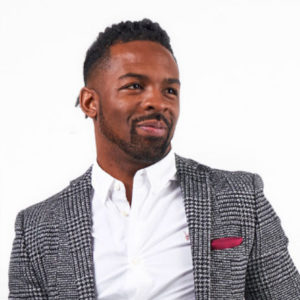 This post is written by our Creative Director, Carl Dennie, whose Bajan heritage and passion for raw, authentic storytelling has shaped his perspective on Rihanna’s Super Bowl performance and the profound significance it has for Barbados, the Bajan diaspora and Black audiences across the world.
This post is written by our Creative Director, Carl Dennie, whose Bajan heritage and passion for raw, authentic storytelling has shaped his perspective on Rihanna’s Super Bowl performance and the profound significance it has for Barbados, the Bajan diaspora and Black audiences across the world.
Last night, Rihanna took to the stage to headline the Super Bowl Halftime show. With this year’s show estimated to rake in 100 million views, it’s arguably the most prime advertising slot of the year, at America’s biggest televised sporting event. As you’d expect from Rihanna, the pop powerhouse used the opportunity to smash a few ceilings as the first pregnant performer and only the eighth woman to headline the show.
Having turned down the opportunity in 2019 as a show of solidarity with Colin Kaepernick, Rihanna has spoken about her desire to use the performance to showcase representation, telling Apple Music, “[Representation] was a big part of why it was important for me to do this show. Representation. Representing for immigrants, representing for my country, Barbados, representing for Black women everywhere. That’s key for people to see the possibilities.”
This representation is where my interest is most piqued – and it goes deeper still.
For Caribbean immigrants and their children, there can be a complex relationship with identity. In the UK, we’ve got too much melanin to be considered ‘British’ by some, and yet our ‘British’ upbringing can feel removed from our parents’ childhood experience in the Caribbean. However, Caribbean culture – wherever we are in the world – remains strong. The most prominent connection we have to our ancestors is through our rich cultural heritage, and the feeling we get when our feet touch the same land our parents were raised on.
That’s why, as a creative director enamoured by authentic storytelling, after seeing Rihanna on the stage, the most powerful part of her halftime show for me was the Apple Music advert released in the run-up to the event. The short video was a love letter to the island she calls home and a celebration of little Black girls with big dreams and the women who nurture them. The creative direction choices include details that those of us with a personal connection to the island can really appreciate.
It’s the opening scene of Black hair, nail art and that distinctive Bajan accent. The colours, the architecture, the minibus and school uniforms. The familiar sight of dominoes being slammed down on the front porch. It’s the fact that the ad was filmed on the former Westbury New Road – Rihanna Drive since 2017 – the road where Rihanna actually lived.
As a Black person of Caribbean heritage raised in London, there’s a magic that comes with visiting Barbados and seeing a society that reflects people like me. Of course, I’m a Londoner and I love my city and the cultural melting pot I call home, but I also have vivid memories of my dad telling me about the difference it makes to be in an environment that doesn’t consider you a minority – you feel it in your body.
That’s what I recognised when I saw Rihanna’s advert.
The things about our identity that are somehow considered ‘different’ or ‘rebellious’ in British and American culture, like Black hairstyling, are just a natural part of ‘us’ in Barbados, other Caribbean islands and across Africa. And that’s what authentic storytelling does, it reflects parts of yourself and the common truths you share within your community.
If you visit Barbados and happen to mention Rihanna to a Bajan, you will hear only pride and joy. And when the island abolished the monarchy in 2021, Rihanna was recognised as a National Hero of Barbados and made an Ambassador for Youth and Culture by prime minister, Mia Mottley.
So really, in addition to billionaire fashion and beauty boss let’s give her her dues and address her as ‘The Right Excellent Robyn Rihanna Fenty’.
At Jérrard Wayne, putting lived experience at the heart of our creative process is non-negotiable. Developing creative that connects with its intended audience is reliant on an authentic understanding of the communities we are aiming to reach. Find out more about why representation matters and how we co-create with intended audiences here.


